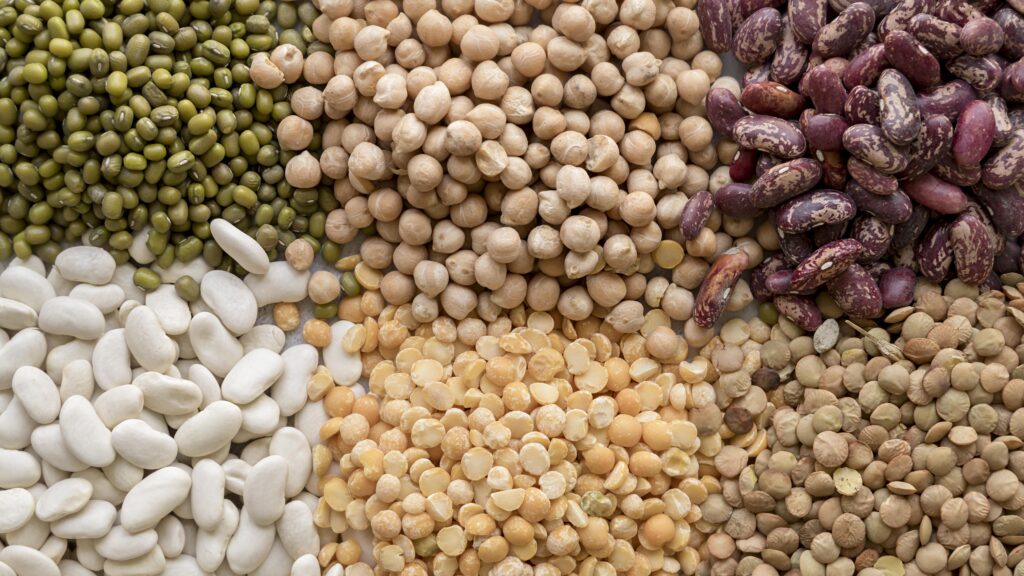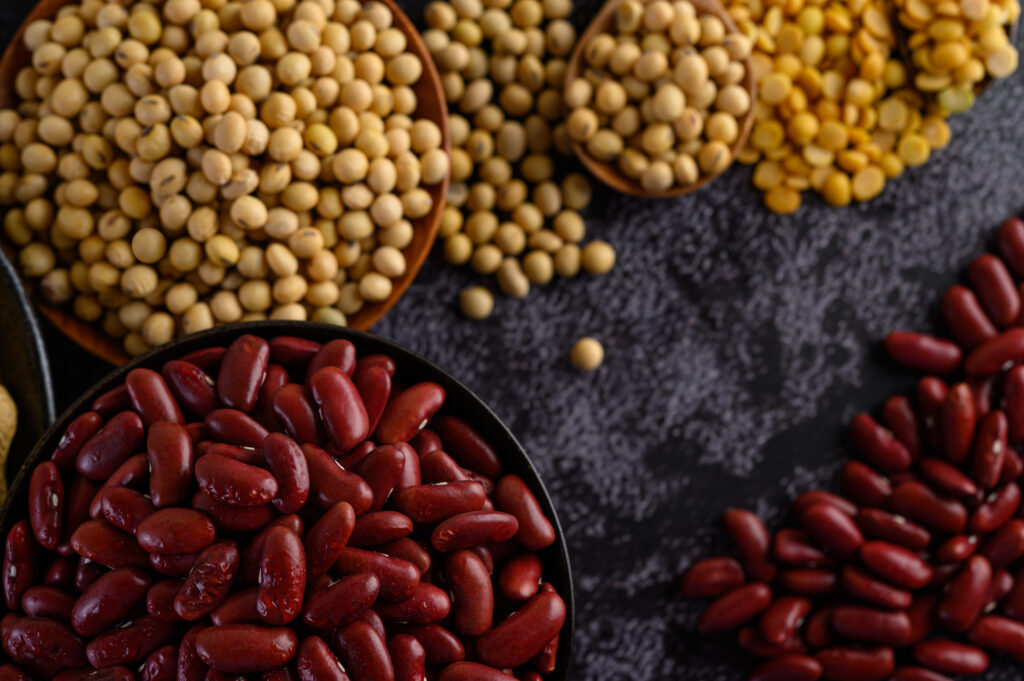
One of the most adaptable foods on the planet is beans. They work well in many recipes, including salads, soups, dips, and even desserts. Additionally, beans enhance the nutritional value of meals and have an amazing nutritional profile.
This post is for you if you want to increase the amount of beans in your diet. Continue reading to find out about the various kinds of beans, their health advantages, and ways to increase your intake.
Table of Contents
ToggleThe macronutrients
1. Protein: One great plant-based source of protein is beans.
2. Fiber: A diet high in fiber helps to maintain digestive health.
3. Complex Carbohydrates: Packed with slowly digested carbohydrates that provide long-term energy
The Micronutrients:
1. Vitamins: Folate, thiamin, niacin, and vitamin B6.
2. Minerals: Iron, zinc, potassium, magnesium, and copper.

Health Benefits:
1.Heart Health: Lower cholesterol, blood pressure, and cardiovascular risk.
2. Weight Management: High fiber and protein content supports weight loss.
3. Blood Sugar Control: Beans’ complex carbs regulate blood sugar levels.
4. Cancer Prevention: Antioxidants and phytochemicals may reduce cancer risk.
5. Digestive Health: Fiber promotes regular bowel movements and prevents constipation.
6. Inflammation Reduction: Polyphenols and antioxidants reduce inflammation.
7.Supports Healthy Gut Bacteria: Prebiotic fiber feeds beneficial gut bacteria.

The legume family, which also includes peas and lentils, is made up of beans. There are various varieties of beans, with some enjoying greater popularity than others.
The most well-known beans include:
Black beans
Pinto beans
Garbanzo beans (also known as chickpeas)
White beans (like Great Northern or Cannellini)
Kidney beans
Soybeans (including young soybeans: edamame)
Black-eyed peas
Lima beans
Fava beans
Adzuki beans
Mung beans
Health Benefits of Beans
Beans supply a variety of vitamins and minerals. The majority of beans are a rich source of folate, a soluble vitamin in water that is essential for a developing fetus. They also provide iron, which is a necessary component for blood health. Consuming beans is a fantastic method to increase your intake of magnesium and potassium, two nutrients that support normal blood pressure.
Beans offer plenty of fiber and plant-based protein in addition to minerals. Muscles and tissues in good health require protein. Consuming adequate fiber has been associated with a decreased risk of heart disease and colorectal cancer in addition to improving digestive health. Beans are quite full and may help avoid overeating, which might result in weight reduction, because of their high protein and fiber content.